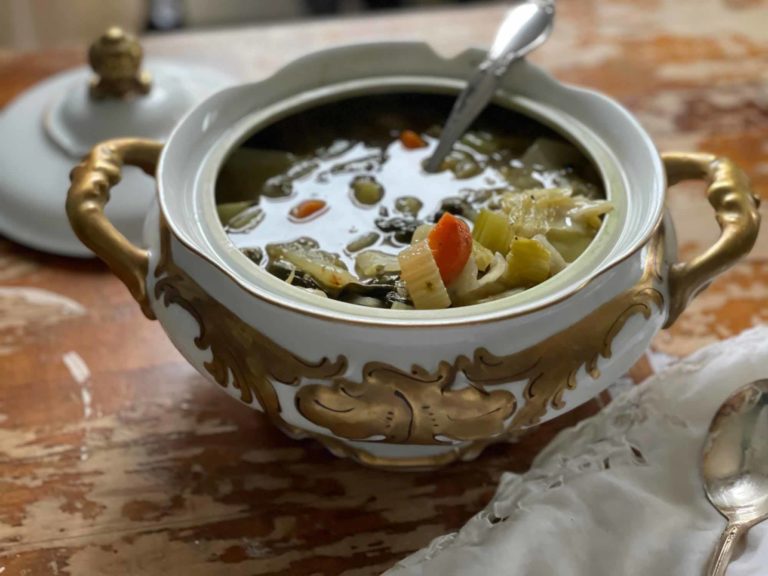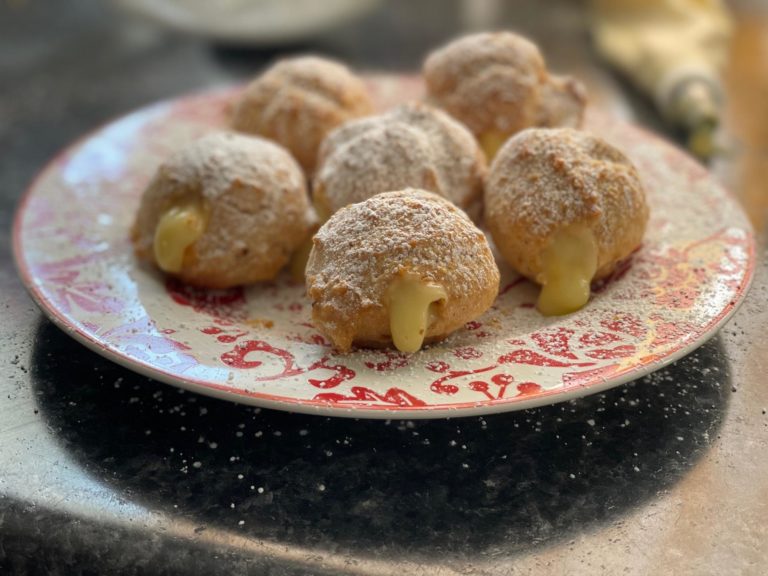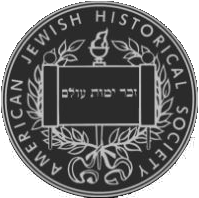A hard-boiled egg is simple: simmer an egg 8-12 minutes, and you’re halfway to an egg salad sandwich. But, what would happen if you were to cook an egg for 8-12 hours?
When it comes to Jewish food, one of the aspects I find most interesting is Sabbath cooking. On the Sabbath—the holy day of rest observed between sunset on Friday and sunset on Saturday–it is forbidden to light any kind of flame. This can make it a challenge to provide a hot meal Saturday meal, especially for families living without modern conveniences and/or prior to the mid-twentieth century.
There are, however, some clever loopholes. For example, in the 19th century a cast-iron stove could be lit before sunset on Friday, and remain lit through the next day. As a result, Jewish cultures developed a slow-cooked stew that could sit on the stove overnight: cholent for Ashkenazic Jews, and hamin for Sephardim; Sephardic Jews also developed another slow-cooked Sabbath snack: huevos haminados.
Kitchen scientist Harold McGee wrote a fantastic essay which touches on the origins of this long-cooked egg dish:
“In his Sephardic Cooking, Copeland Marks reports having eaten ‘Jewish eggs’ among Calcutta Baghdadies, in Morocco, Tunisia, Turkey and Greece. He gives a Spanish version via Salonica, huevos haminados, that calls for tea leaves, coffee grounds, and onion skins in the cooking water, as well as a bit of oil and vinegar. The eggs are brought to a boil, then cooked over a low heat ‘for at least 5 hours, preferable 6.’ Marks notes that ‘…The longer one cooks them at a very low heat, the softer they become instead of the reverse….’ The whites acquired a soft beige color…and the yolks are…cream and pale yellow. The flavor is delicate and excitingly different from eggs cooked in any other way.”
In his seminal work On Food and Cooking: The Science and Lore of the Kitchen, McGee writes:
“During prolonged heating in alkaline conditions, the quarter gram of glucose sugar in the white reacts with albumen protein to generate flavors and pigments typical of browned foods (see the explanation of the Maillard reaction). The white will be very tender and the yolk creamy if the cooking temperature is kept in a very narrow range, between 160 and 165ºF/71–74ºC.”
McGee tested the eggs at several temperatures and with different additives in the water. He found that the whites of the eggs always turned a brownish color, whether or not they were cooked in plain water, or in water with other additives. The egg proteins develop a nutty flavor, and the egg itself becomes creamy. If cooked with coffee and olive oil, the nutty flavor of the egg would increase and dye the outer shell, while cooking with onion peels dyed the shell, but didn’t affect the flavor.
I didn’t have the capabilities to test this recipe as thoroughly as McGee did, but I did have curiosity and a slow cooker. So, I took out my slow cooker, and unceremoniously dumped in a half-dozen eggs.

Huevos Haminados (Seven Hour Eggs)
Directions
- Gently place six eggs into a slow cooker. Cover with water. Set cooker on “low” for seven hours.
- When the seven hours are up, remove eggs from water with a slotted spoon.
- Run cold water over eggs until they are cool enough to handle; I like to use a colander for this job.
- Crack, peel, and serve warm.
These slow-cooked eggs blew my mind! The whites had turned a distinctly brown color, and when I bit into my first egg, I tasted meat! The egg tasted like a pot roast! Closer to the yolk, I encountered the distinct, nutty flavor discussed in McGee’s article.
Brown. Meat. Egg. Who would have expected that?







